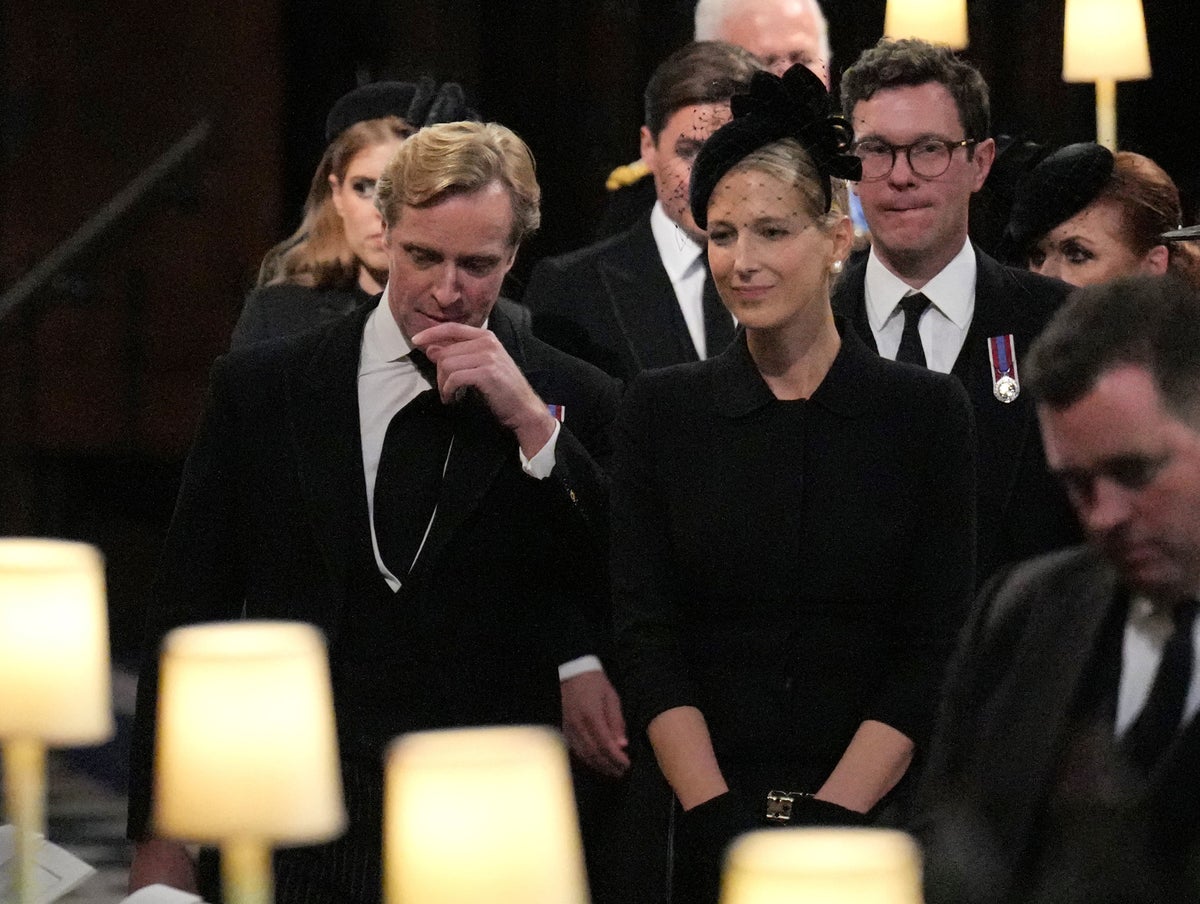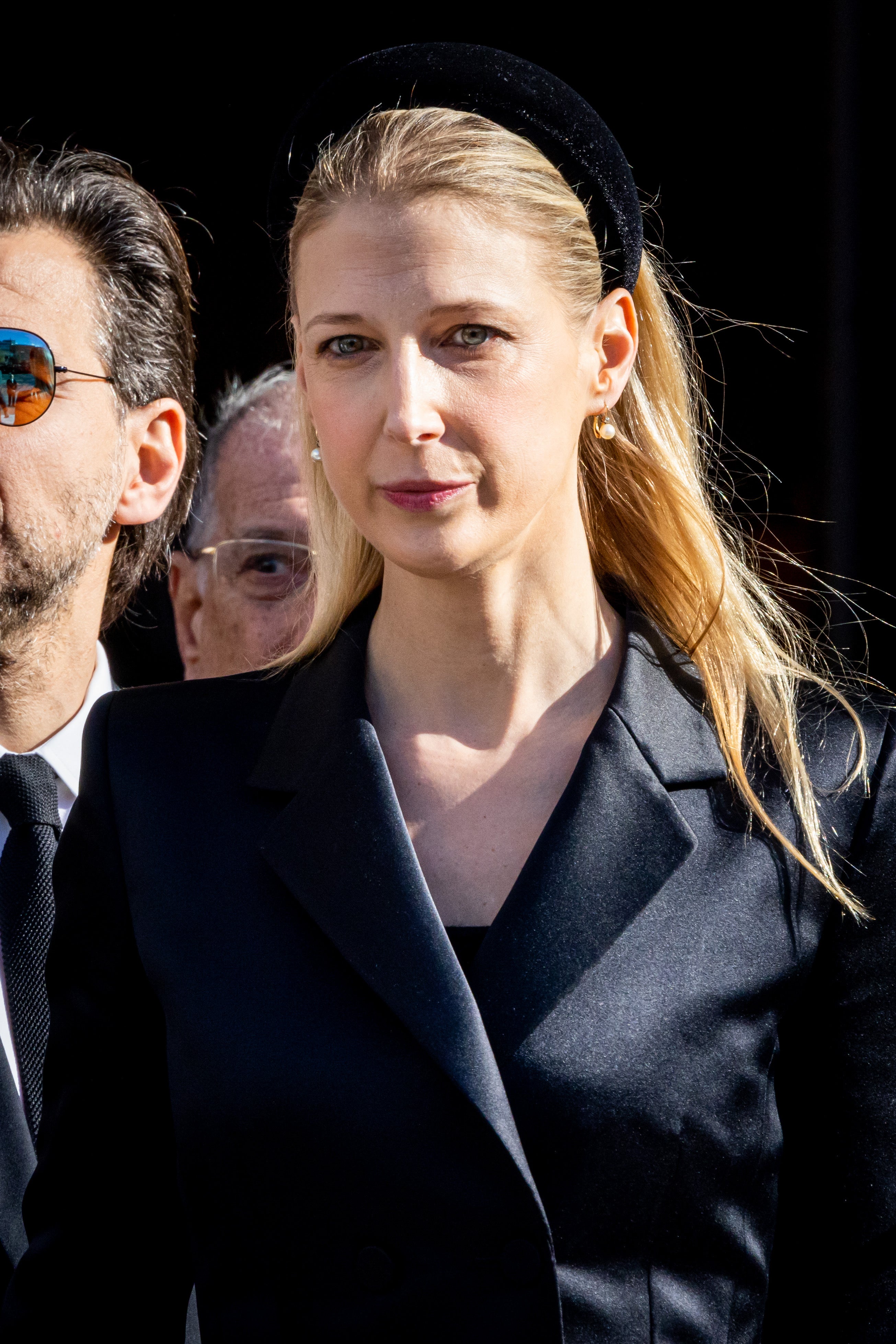
Lady Gabriella Windsor has taken her first strides into public life in the shoes of her cousin Prince William as his stand for the funeral of the former King of Greece.
Accompanied by the Princess Royal, Lady Gabriella, 41, daughter of Prince Michael of Kent, was asked to represent the future king at the Metropolitan Cathedral in Athens.
It comes after King Charles hinted that both Prince Andrew, recently embroiled in a legal battle, and Harry, whose book Spare shook the royal family, would be sidelined indefinitely as working royals.
The King recently extended his list of counsellors of state, those who can deputise for the monarch if he is overseas on an official trip or ill.
Lady Gabriella married financier Thomas Kingston in 2019. The intimate ceremony in St. George’s Chapel at Windsor Castle was attended by several senior members of the royal family, including Queen Elizabeth II and Prince Harry.
Her godfather Constantine II, second cousin to King Charles III, died aged 82 at a private hospital in Athens on 10 January.
The former and last king of Greece, whose first cousin was Prince Philip, was especially close to Charles, earning him the title of godparent to William.
His close tie to the British royal family was later affirmed, as the Prince of Wales was himself named godfather to Constantine’s first grandson, Constantine Alexios.
Among the guests at Constantine’s funeral were royals from Denmark, Norway, Sweden, the Netherlands, Belgium, Luxembourg, Serbia and Monaco.
Notable attendees included Queen Margrethe of Denmark, and King Felipe and Queen Letizia of Spain. Prince Philippos of Greece and Denmark and Pavlos, Crown Prince of Greece were also seen arriving at their father’s funeral.
“God’s will was for you to take your last breath in our homeland, which you loved like nothing else all your life,” Pavlos, Constantine’s eldest son, said in an eulogy earlier.

Monday’s service, officiated by the country’s Archbishop, Ieronymos, was private, reflecting Constantine’s status as a former king.
When he acceded to the throne as Constantine II at the age of 23 in 1964, the youthful monarch, who had already achieved glory as an Olympic gold medalist in sailing, was hugely popular.
By the following year, he had squandered much of that support with his active involvement in the machinations that brought down the popularly elected Center Union government of prime minister George Papandreou.
The episode, still widely known in Greece as the “apostasy,” or defection from the ruling party of several lawmakers, destabilised the constitutional order and led in 1967 to a military coup. Constantine eventually clashed with the military rulers and was forced into exile.
To his final days, Constantine, while accepting that Greece was now a republic, continued to style himself King of Greece and his children as princes and princesses even though Greece no longer recognised titles of nobility.
For most of his years in exile, he lived in Hampstead Garden Suburb, London.







